Fusion Energy: A Different Take
by Gary Gardner
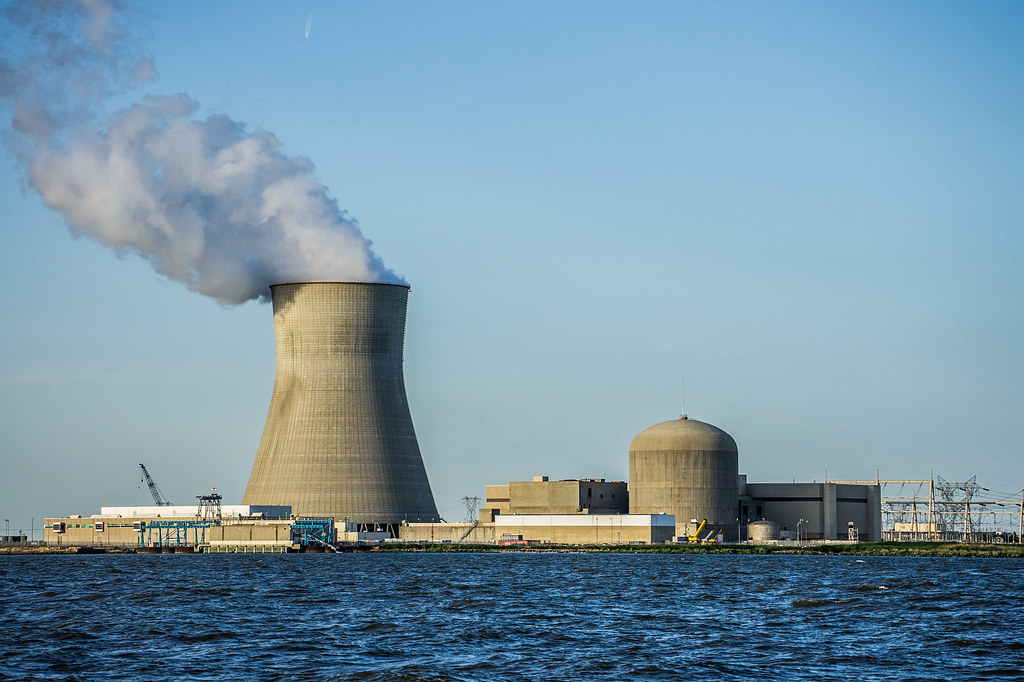
Nuclear energy: moving from fissile to fusile, or both for GDP? (CC BY-SA 2.0, Peretz Partensky)
The recent news that scientists moved a step closer to fusion energy was greeted with enthusiasm and awe in much of the media, a bright spot of cheer amid the ongoing drumbeat of existential global threats. Only the most cynical of curmudgeons could pooh-pooh this hopeful development—right?
After all, energy is the foundation of human development. Civilizational advance is a tale of ongoing successes in shaping energy for human ends. The control of fire; harnessing of draft animals; tapping of wind and water; combustion of oil, coal, and natural gas; and splitting of atoms—each of these leaps led to a catalogue of marvels, from cooking and agriculture to space travel and computing power.
Development is energy tamed, essentially. And bearing in mind the nearly ten percent of the world’s people who are chronically hungry, or the 20 percent who lack adequate housing—people who need a higher level of development—isn’t the prospect of a powerful new energy source welcome news?
The Problem of Unbounded Energy
That’s the upbeat view, apparently widely shared, judging from the media cheerleading. But another view deserves a hearing. The energy advances that drove development for millennia also brought growing levels of destruction, to the point that humanity’s capacity to thrive on this planet, and even to survive, is now imperiled. After all, what is climate change but the shadow side of fossil fuel use? What is environmental decline—whether species loss and deforestation, water scarcity and pollution, or myriad other signs of environmental dysfunction—but the consequence of a fossil-fueled development pursued with little sense of limits? The power represented by fossil fuels in particular has vastly increased humanity’s capacity to extract, process, and consume massive quantities of resources, often with massive accompanying environmental damage.

Plentiful energy has caused plenty of problems. (CC BY-NC-SA 2.0, Peter Thoeny)
Indeed, our growing skill in harnessing energy has spawned a corresponding hubris in humanity’s development ambitions. Our high self-regard as master builders has put few projects off limits, no matter their impact on the natural environment. We humans have chopped off mountaintops, reversed the flow of rivers, and drained inland seas in the name of development. We’ve even considered using “peaceful nuclear explosions” to build harbors, canals, and other works of civil engineering. Since the dawn of the fossil-fueled industrial era in particular, the human interest in building has been pursued with short-sighted confidence, often to the detriment of the natural world that sustains us.
So news of a tremendously powerful and inexpensive source of energy should unsettle us and prompt a nagging question: Where are the boundaries? How would use of fusion energy be limited to ensure that it powers only activities that work in harmony with the natural environment? When would we say enough is enough, and who would draw these lines? Judging from the media response to the fusion news, few journalists, policymakers, or citizens are asking such questions and many seem unaware of them. For most of us, the credo of more, bigger, and faster is the undisputed foundation of economic health and the meta-ethic of economic development.
Bounded Energy for a Steady State Economy
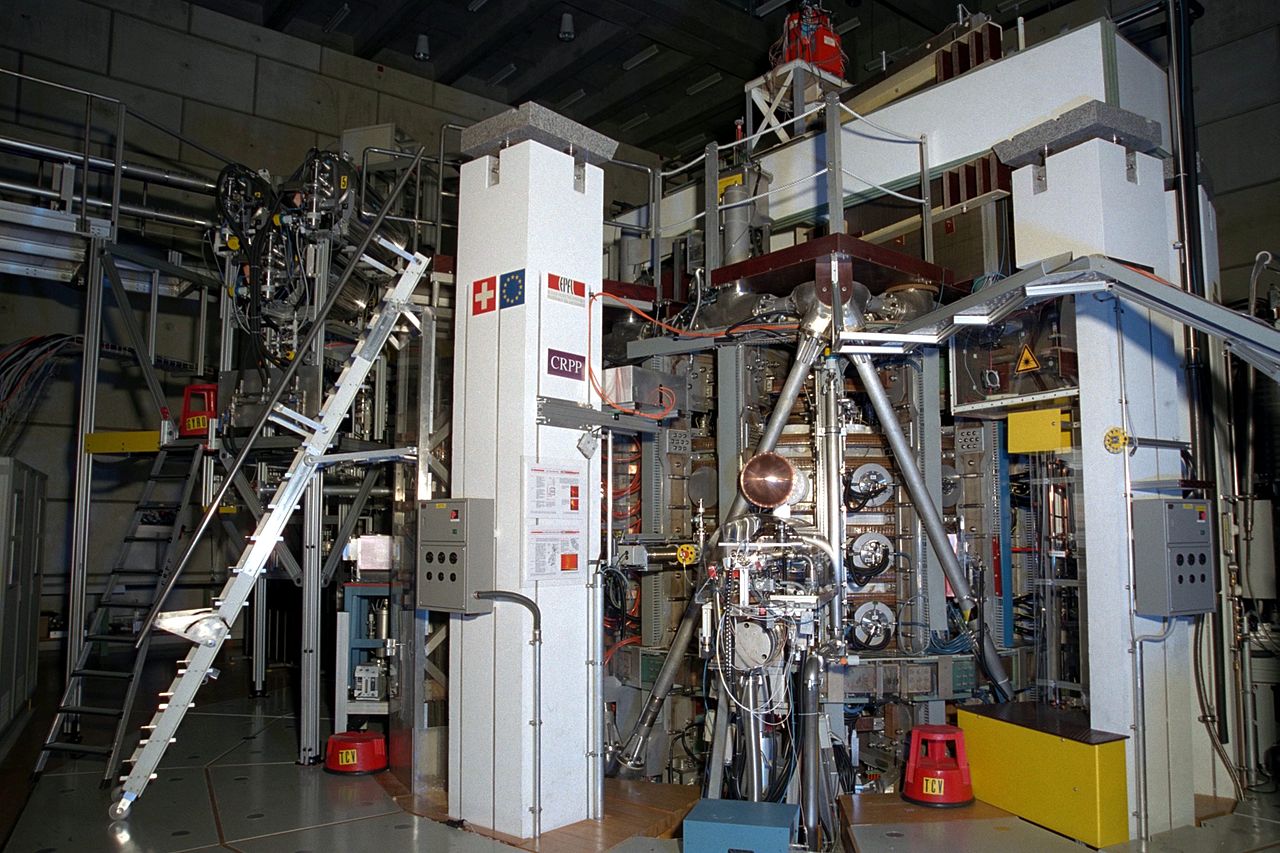
Research fusion reactor in Switzerland: devils in the details? (CC BY-SA 2.5, CRPP-EPFL)
Of course, steady staters reject such notions of perpetual growth. A steady state economy would feature policies that identify boundaries and set limits. Policies such as taxes on pollution and resource depletion, ecological tariffs, and habitat conservation that could radically reduce, by design, growth in material flows through the economic system. Less material growth would mean less growth in energy use and might even eliminate the need for exotic, ultra-powerful sources of energy like fusion.
The boundary-setting at the heart of a steady state economy, far from handcuffing our development, actually promotes a “sustainable creativity,” that is, it releases human ingenuity in ways that carry long-term social and environmental benefits. The boundaries pose a challenge: Improve the well-being of humans without worsening it for other forms of life and the systems that support them. Such a task implies a more sober use of energy, eliminating dirty forms and limiting the total power wielded.
The Gaviotas Example
A great example of sustainable creativity is the story of the Gaviotas community in Colombia, which has created a high level of development (meaning high levels of human wellbeing, not high levels of material throughput) without requiring vast quantities of centralized, industrial energy. As a model for rural development Gaviotas is impressive without being open-ended; it sets boundaries of sustainability. These include using only renewable energy, relying on local resources, and using resources sustainably.
The community is technologically innovative, having developed wind turbines engineered for the gentle breezes of the region. It practices a conservation wisdom by harvesting resin for biofuel rather than whole trees from its forests, even though logging would be more lucrative. Meanwhile, it uses the product of its material development to advance the well-being of all community members; its inventions are not patented and the community’s economic output is broadly shared.
One has to wonder: Would access to a powerful and inexpensive form of energy like fusion benefit or harm the impressive development advances achieved at Gaviotas?
Gaviotas is a small, rural community of a few hundred people, and hardly a development model for the growing roster of cities and megalopolises worldwide, which will likely need powerful energy sources into the indefinite future. Its contribution to building visionary new economies lies not in the specifics of its economic practices, but in the fact that it sets sustainability boundaries at all, a prerequisite for steady state economies. Applying such boundaries to economies at a larger scale should be a prerequisite that shapes their energy choices.
Indeed, one thing seems indisputable: Unleashing fusion in an unbounded, growth-driven economy would be a wholesale disaster. Without clear limits to growth, unbounded energy would mean unbounded destruction. That’s a development nobody should hope for.
 Gary Gardner is a sustainability writer and editor.
Gary Gardner is a sustainability writer and editor.
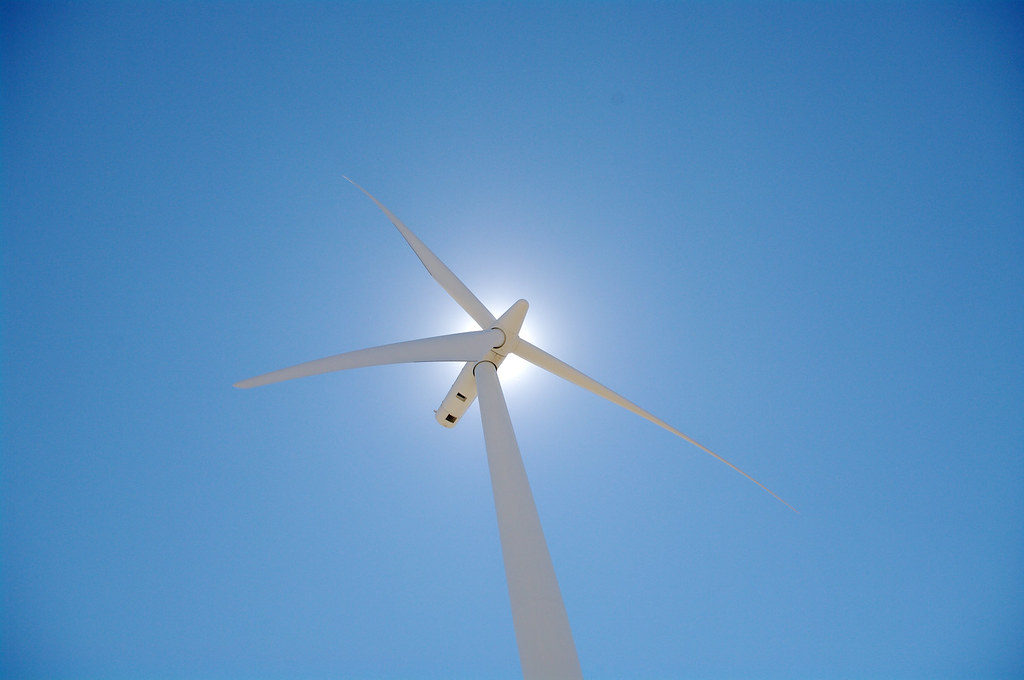

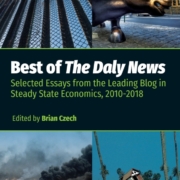
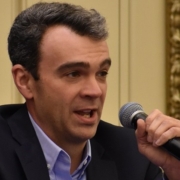




Totally Agree.
Even if it can be safe and free, a stretch in itself, fusion energy is an excuse for continuing unlimited population and economic growth, thus further destroying all that makes life worthwhile.
Such short term illusionary thinking must be countered in a loud and repeated manner.
I had not thought of fusion energy that way, but it’s a good point: society at large seems to be treating (potential) fusion as an excuse to double down on profligate habits. Which will only lead to further bottlenecks and crises.
Regarding fusion, a few months ago I read a fascinating article on Science about how there just may not be enough tritium isotope to jump start a fusion revolution, even if the science and engineering challenges are all solved. It’s a good article, worth a read: https://www.science.org/content/article/fusion-power-may-run-fuel-even-gets-started
Thanks, Cole. An interesting and informative read!
Without fail, every highway widening project I have seen has resulted in more subdivisions being built and the exact same traffic congestion within a few years. Maybe it’s time for humans to actually think about where unrestricted perpetual economic and population growth leads to. Next step would be coming to the realization that we can take steps to control that future.
Spot on!
I’m in total agreement with the philosophy behind this essay.
But I would be extremely surprised if fusion ever becomes a viable source of energy. It’s been 50 years in the future for 50 years, and that’s where it remains. It’s an incredibly complex technology that begs Murphy’s Law. This article is interesting, because the writer clearly likes fusion and wants to see it succeed, but reading it gave me the feeling that it was doomed to fail.
https://www.newyorker.com/magazine/2014/03/03/a-star-in-a-bottle
But heaven help us if I’m wrong about fusion.
Unfortunately the world is not made up of lots of Gaviotas-type communities, i.e. low population small scale local resource-dependent communities. Most of the world lives in giant urban conglomerations dependent for their energy, food and water on other regions (and countries). While many agree that relocalization of economies is vital for human civilization and are survival, no one has considered the practical implications of this: abandoning urban areas and relocating people into small self sufficient communities. Relocalization may be possible in many small countries that lack large cities, but for existing cities (take your pick: New York, Mumbai, Sao Paolo, Bangkok, etc) it is nothing but a dream. And of course there is also the overpopulation issue that will render such dreams completely impossible. Cities and their surrounding suburbs cannot survive much longer, as parasites on the rest of their region or country.
You can put all the solar panels and wind turbines and photovoltaics there that you want (actually this would be impossible in a city of millions) but this will not curb the loss of biodiversity or mitigate climate change to the degree and in the time space required. It will be a miracle if human civilization lists until the 22nd century.
Really interesting, about the impact of access to massive amounts of electricity from fusion (IF it ever happens).
Probably a case of Jevons’ Paradox.
Terrifying prospect, if humanity gets its hands on yet more energy, and uses it to continue to wreck the natural world, and extirpate the other species.
It has been our species’ access to vast amounts of energy that has enabled us to expand our population, and global impact, to entirely unsustainable levels. This “low carbon” energy from fusion might help reduce global heating, but it will in all probability just aid us in further wrecking the rest of life, with which we are meant to share the planet
Thank you for mentioning Jevon’s Paradox. In this case, the rebound effect would be so extreme that our species would consume itself to death.
I’ve been accused by some of being somewhat cynical. Maybe that’s because at one time I wrote a blog coming from a fish’s perspective whose name was Cyprinid Cynicalis. Cyprinid often found himself asking whether or not we humans could agree on anything. I’m a fish biologist and I find myself asking that same question. I’ve always enjoyed what I read coming from CASSE, and being a biologist – agree with it all. I often multi-task, and as I was reading Gary’s article, I was also watching this Youtube video with Jordan Peterson and Alex Epstein discussing not only “The Climate Con”, but the benefits of burning fossil fuels.
I found myself unbelievably flummoxed as I went back and forth from reading Gary’s article and watching the video. I have to ask how is it that intelligent people can see things so differently? Being an idealist and an optimist, I hope that one day we can agree on environmental concerns and their causes before it’s too late.
On the plus side, at least Mr. Peterson does have a soft spot for the plight of some of our coastal fishes.
Brian – I would love to see you debate Jordan Peterson.
If energy is close enough to free because of fusion then there is greatly reduced demand for children to provide care for the aged. I would expect food from laboratories rather than agriculture because the ROI for energy approaches irrelevance. Indeed the emergent problem would be what to do with those people who can not be reasoned with and the Stalin solution of no people no problem
It astonishes me anyone still thinks fusion is connected to electricity production. How one could convert 100 million degree plasma into spinning a turbine to power your toaster is beyond my understanding.
If one wanted to accelerate global heating then building fusion reactors would be wonderful. All that liberated heat could speed up melting of the ice caps.
Fusion is a great way to study H-bomb explosions in the lab and would be intensely radioactive through neutron emissions (which would make the steel radioactive). I prefer the fusion reactor that has a 150 million kilometer evacuation zone, but also know (through a third of a century’s use) that solar power won’t replace digging up 100 million years of stored energy. We’re not prepared – psychologically, not just logistically – for the downslope.
http://www.peakchoice.org/fusion.html
Really miss the podcast.
Agreed.
A view I’ve long held.
Had there been an environmental movement in the 1700s, Thomas Paine would’ve led it. He was an animal lover and friends with John Walkman who walked around the earth. Plus, Paine’s values of justice and equality provide a basis for modern environmentalism.
“We have it in our power to begin the world over again.”
A new play, Tom Paine’s Bones: a cautionary tale from a successful rebel, opens Presidents’ Day weekend in Portland OR, before moving to other towns around the country.
The author of Common Sense—the first bestseller in English—Paine named the new nation, The United States of America. He made friends with Ben Franklin, a Belgian baroness, and others, yet faced death seven times and survived six (not bad for a writer).
It’s a story you don’t want to miss, and many others need to hear. The project has been a labor of love for Team Paine. Pacific Northwest film actor Marty Beaudet performs Jeffery Smith’s well-received script, former Congressional candidate Marc Koller produces it.
Paine’s life matters now as much as ever. Not just because it was so exciting it could be a movie. Or because he was mercilessly slandered and his name merits clearing. But also because what he stood for and the sacrifices he made remind us that with freedom comes great responsibility.
Tickets to the Portland OR performance can be purchased @ https://www.eventbrite.com/e/500320049737. Invite us to perform in your town!
We’re using crowd funding to cover theater rental, hiring technical assistants, props, etc. If you’re so moved and able, click on this link—help us bring this to life and before live audiences.
https://www.kickstarter.com/projects/1374056745/tom-paines-bones-the-man-who-risked-all-for-everyone?ref=nav_search&result=project&term=tom%20Paine%27s
There you can read more about us and the rewards for backers.
Thank you for taking a moment to consider our request, and please forward this on to any of your friends.
The only path I see out of this fine mess is to stop being the market for this nonsense. That, I suspect, will require almost universal ecological literacy. Few see the need for a steady state economy, or recognize that they are captives of a “free market” running on consumerism, with no limitations since the corporatist revolution Reagan dragged out of California. The opulent haven’t gotten this close to complete control of the US, and they want so badly to get a dictatorship going so this looks like South and Central America, only the US has control down there when some country owes the US a lot of money. No one’s borrowing from Uncle Sam’s representatives. So not only do we need to move fast to place limits on fusion, but we have to do that same for corporatism, Mussolini’s label for fascism, which the very rich are fond of. If they get that, we’re done. Gaia’s done. Earth is done. Political ecology “sees” power systems and how they act, and we need for a lot of people to know that practice. But they don’t seem to want to, to me. So we have this. A situation growing steadily worse.
Who’s funding the effort to cause fusion in utility volume? Does anyone really doubt that fusion will be profitable? Corporatists did Jan 6. But for doing it on camera, they would have another chance in 2024. One by one, the FBI brings them in. The Trumpster is probably next.
The thing here, I think, is that we, the people, haven’t withdrawn our consent to be governed by corporatists. We must, to regain the political power to do what must be done to save Gaia. Then we can nationalize fusion and take the profit out of it, and health care, and housing, and food, and militarism. But that’s a long way from here. My sense is that a comatose citizenry doesn’t want to get out and get their heads beat in. I’m not too keen on that, either, but if it puts power back into the hands of the people, I’d do it, and I’m 72 years old. We owe a future worth having to our kids.
I agree that almost unlimited energy would be liable to unleash all sorts of unsustainable behaviour. But I have a separate concern. The anthropogenic global warming that we are now battling is due to our artificially adding to the blanket of greenhouse gases around the earth, and so preventing as much of the energy received by the earth from the sun escaping into outer space as used to happen in pre-industrial times. Even if we succeed in ‘thinning’ that blanket back to what it was for millennia, if we then construct thousands of mini-suns here on earth, and thereby significantly increase the amount of heat under the blanket, that increase must be dispelled into outer space to keep global temperatures constant. If it is not, we will have a second global warming crisis every bit as threatening to our and the planet’s future as today’s. It could become essential to ration the energy each nation may produce annually.
Does anyone have the figures to say whether this is just a theoretical or a realistic concern? Assuming, of course, we ever do crack fusion.
Living in voluntary sustainability is not possible. Here is Jay Hansen’s why:
“regardless of how well they control their own population or act ecologically, they cannot control their neighbors’ behavior. Each society must confront the real possibility that its neighbors will not live in ecological balance but will grow its numbers and attempt to take the resources from nearby groups. Not only have societies always lived in a changing environment, but they always have neighbors. The best way to survive in such a milieu is not to live in ecological balance with slow growth, but to grow rapidly and be able to fend off competitors as well as take resources from others.”
https://jayhansonsdieoff.net/overshoot-loop-evolution-under-the-maximum-power-principle/
Taking resources from other groups, in this case, Europe and Russia, is why the US is waging a proxy war on Russia. If you still doubt this, then wait until end 2024 to see what the situation is.
Also, Game Theory makes it clear that it is inevitable that this war will involve, and hence end, with nukes.
Sadly, taking resources from other groups, in this case, Europe and Russia, is why the US is waging a proxy war on Russia. If you still doubt this, then wait until end 2024 to see what the situation is.
Also, Game Theory makes it clear that it is inevitable that this war will involve, and hence end, with nukes.
Thanks, Dave. One reason smart people disagree on sustainability issues is because they come at the issue from different time perspectives. For a long view, see this interview with UCSD’s Tom Murphy–scroll down to “The Simple Story of Civilization” https://dothemath.ucsd.edu/.